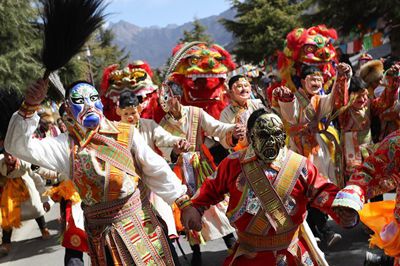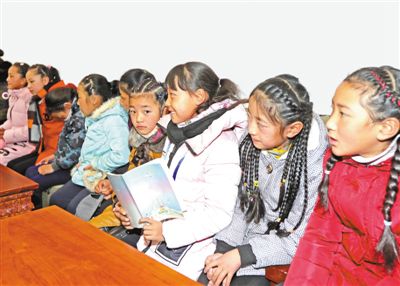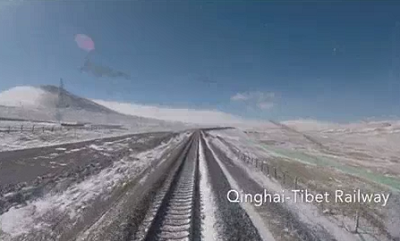|
7. The 2000 Report on Human Rights published by the British Foreign Ministry claims that "Britain is the only country that does not recognize China's sovereignty over Tibet." What are the facts?
A: From Chinese and western history books it can be seen that since the 18th century, when Britain first set foot in Tibet, each time the Tibet issue was raised between Britan and the Qing imperial court, it was on the basis of Tibet being a part of Chinese territory. Whenever Britain and the Qing imperial court, it was on the basis of Tibet being a part of Chinese territory. Whenever Britain sent its emissaries to visit Tibet, they had to obtain visas from the Qing court. Foreigners were forbidden to enter Tibet without permission from the Chinese emperor. For instance, in 1774 and 1783 Warren Hastings, then British viceroy of India, sent George Bogle and Samuel Turner, secretaries of the East India Company, to Tibet, intending to building trade ties with the local government of Tibet without going through the medium of Chinese central government. George Bogle attempted to establish links with the areas under the jurisdiction of the Panchen Lama. The Panchen Lama's response was, "The Chinese emperor controls and supervises Tibet through the prince regent and commissioner whom he has appointed and stationed in Tibet. If the prince regent administers competently, and the emperor in Beijing is satisfied with him, then all is well. Otherwise, the emperor will behead him." He also said, "I am merely a lama who chants sutras, so I cannot conclude any convention with foreign countries."
In the late 19th century, in its continued effort to carve China up, Britain launched two wars to invade Tibet, and fabricated the theory of China's suzerainty over Tibet in order to create a foundation for the concept of "Tibet independence." however, historical facts cannot be denied. The British-Indian officials' understanding of Tibet's status best explains the "suzerainty" theory of the British government. George Bogle, the first Briton to enter Tibet and establish relations between the British-Indian government and Tibet, admitted, "Tibet is under the jurisdiction of the Chinese emperor." (See "Britain, Russia and China's Tibet" chiefly edited by Zhou Weizhou, page 35, published by China Tibetology Publishing House, 2000).
In a letter dated January 8, 1903 from the British cabinet to Lord Curzon, British viceroy of India, Britain clearly affirmed that "Tibet is a province of China" and 'a component part of Chinese Empire," and that Curzon's "buffer state' scheme "violates the territorial integrity of the Chinese Empire," thereby the cabinet should not approve it. In addition, all conventions between the British-Indian government and Tibet regarding Tibet's foreign affairs, national defense, commerce, finance, taxation and public security indicate that Britain recognized China's legitimate rights over Tibet regarding both its foreign affairs and civil administration. Of all the conventions signed between China and Britain regarding Tibet, not a single article denies China's right of guidance, administration and supervision over Tibet's civil administration. On the contrary, all the convention rights enjoyed by Britain in Tibet were obtained through the central government of China.
On June 17, 1954, with respecting China's sovereignty and territorial integrity as prerequisite, Britain and the People's Republic of China established diplomatic relations on a charge d'affaires-level, and on March 13, 1972, these diplomatic relations were advanced to ambassador-level. The establishment of diplomatic relations between Ritain and the People's Republic of china indicates that Britain respected China's sovereignty and territorial integrity. How, then, can Britain deny it has openly acknowledged Tibet as a part of Chinese territory? |
- Home
- News |Tibet |Exclusive |China |World |Other Tibetan-Inhabited Area |Tibet through the Eyes of Foreigners |Related News
- Documents |White Papers |Others
- Photo |Politics |Economy & Society |Culture & Religion |Human & Nature |Beautiful Tibet |Other Tibetan-Inhabited Area |Exchanges |Related
- Video |News |Documentary |Micro-Video |Entertainment
- Art
- Tourism
- In Focus
- About Tibet






